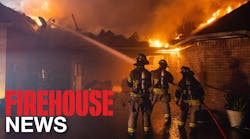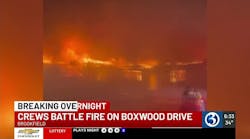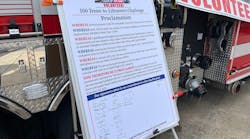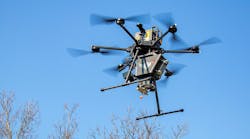The IC can easily become the contributing agent to a company freelancing operation. It is through vague or nondescript assignments that working teams pick their own path. The IC can help reduce these occurrences through the delivery of clear tactical objectives and task assignments. When assigning work, the IC needs to identify the area of responsibility, the tactic to be completed, and whom the company reports to (their boss) or who reports to them (if it is a multiple company operation). When these three items are relayed to the company, the ability to indiscriminately self-deploy is dramatically reduced.
Company officers and team leaders have a vital role in carrying out fire ground orders. Most persons in these roles naturally want to be aggressive and get the job done. It is because of these ambitions that lack of direction can serve as an invitation to freelance. Once aware of the open door, the company officer must take a course of action to prevent their crew from proceeding. The first option is for the company officer to challenge the IC in order to get more specific directions. If not instructed, the company officer needs to ascertain this information - "where do I need to be? who am I working for or who is working for me? and finally, what am I suppose to be doing?" When the assignments given are on target and the job is clear, the company officer can work in a manner that is safe, accountable, and without freelancing. In these instances, the company officer must rely on his/her team leadership to prevent the entire crew from getting off course. The company officer maintains the leadership role and directs the crew to work towards the given mission. Continuity, consistency and safety are maximized.
The accountability officer, as the person responsible for tracking our human resources on scene, can play a significant role in the reduction of company freelancing. This is best accomplished by listening to the PAR (personnel accountability report) given and matching it with the known assignment. Any accountability officer who is performing his/her job properly and is paying attention to the incident can pick out companies that are not doing what they should be doing. In these cases, a quick call or word to the IC can put everyone back on track.
It is through the actions of the IC, the company officer and the accountability officer that overall fire ground operations can be made safer for the working crews. It takes teamwork and a commitment to the accomplishment of the strategy and tactics to reduce the incidence of company freelancing.





